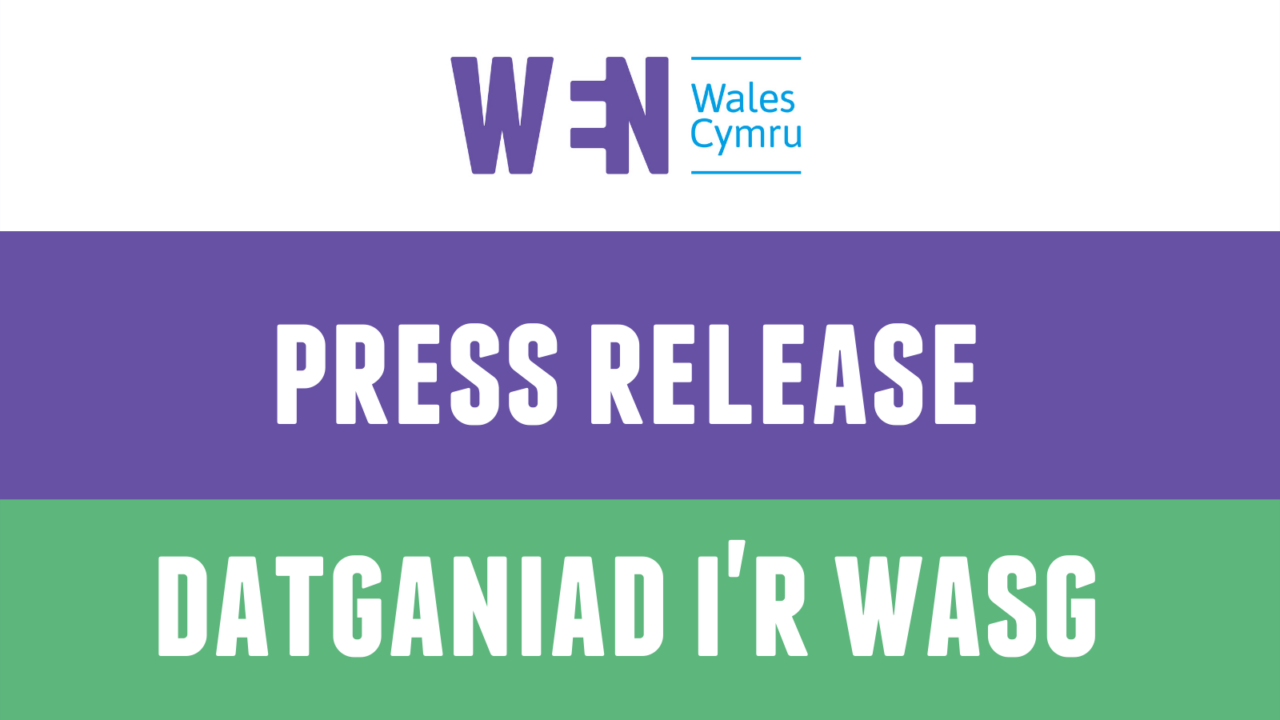PRESS RELEASE: Young voters in Wales overwhelmingly support caring recovery from COVID 19

7 out of 10 young voters across the political spectrum in Wales want to see greater investments into childcare and social care, according to research conducted by the Women’s Equality Network (WEN) Wales, Women’s Budget Group, Fawcett Society, Northern Ireland Women’s Budget Group, Close the Gap and Engender.
72% of 18–30-year-olds in Wales say there should be greater investment in early education to create more affordable childcare. 69% agree that social care for older people and people with additional needs should be free.
Support is even higher among female voters, with 80% of young women favouring investment in early education and 75% young women agreeing that social care should be free.
There is also widespread support among young people for investments into the benefit system (58%), affordable housing and tenant security (76%) and Universal Credit equity for parents under 24 years on low incomes (72%).
Tackling poverty, stopping violence against women and housing are top priorities for recovery from the pandemic
When asked what issues the Welsh Government should prioritise for the recovery from the pandemic, 60% of young people in Wales ranked tackling poverty as a top 3 priority, followed by stopping violence against women (44%) and housing (42%).
While results are broadly similar for young male and female voters, more young women show support for prioritising tackling poverty (64%), stopping violence against women (47%) and housing (43%). Young men are more likely to rank climate change as a top 3 priority (44%).
Equal representation and leadership major concern for young BAME voters
Data from Wales’ young BAME voters demonstrates a substantial concern for equal leadership and representation. 44% of young women and men from racialised backgrounds rank equal leadership and representation as a top 3 priority. This priority ranks second only to tackling poverty (53%) and comes before stopping violence against women (41%). By comparison, 30% of young women and men from the general population rank equal representation and leadership as a top 3 priority.
Financial struggle and mental health toll disproportionally affecting young women
The research also confirms previous findings that women are more likely than men to struggle financially and experience poor mental health as a result of the pandemic.
A third of young women (31%) said they are not confident that they will have enough money for the next 12 months, compared to 22% of young men. 68% of young women report that their mental health has got worse during the pandemic, compared to 45% of young men. Among young disabled women, a staggering 80% report that their mental health has got worse.
Financial and mental health disparities are linked to women’s role in unpaid and low paid care work. Welsh Government must ensure that Wales’ recovery from the pandemic is a Green AND caring recovery.
We are calling on Welsh Government to:
- Invest in the childcare and nursery sector to create new jobs .
- Progress existing plans to ensure all care workers in Wales are paid fairly and have access to training and clear routes for career progression.
- Make the childcare offer affordable and accessible for parents of all children from six months, regardless of parents’ employment status.
- Invest in a caring economy that values and rewards currently unpaid care, in line with the recommendations in the Women’s Budget Group’s report Creating a Caring Economy: A Call to Action
- Ensure that the violence against women specialist sector receives secure and sustainable funding for prevention, protection and support with a commitment to ending VAWDASV.
Catherine Fookes, Director of Women’s Equality Network Wales, said: “It’s clear from this polling that young voters across the political spectrum want to see greater investment in a green and caring recovery. We are calling on Welsh Government to go further in investing in the caring economy – an improved childcare offer, fair pay in the care sector, and an economy that values the unpaid care that is overwhelmingly undertaken by women. These steps would help reduce the financial and mental health burden on the young women of Wales, who have found themselves at the sharp end during this pandemic.”
Rebecca Graham from Standard Life Foundation said: “There is now a strong body of evidence showing how uneven the effects of the pandemic have been. People in Wales are increasingly aware of the issues and want to see real change that will bring about long-term benefits. The country deserves a fairer economy that values more types of work.”
Notes on methodology
Our research is drawn from data collected by Survation between 4th – 14th June 2021 from a general population sample size of 506, as well as BAME population data collected between 4th June – 12th July 2021 with a sample size of 157. The survey was conducted via an online panel. Invitations to complete surveys were sent out to members of online panels. The population sampled were adults in Wales aged 18 to 30.
About us
This research was conducted by the UK Women’s Budget Group, Fawcett Society, Northern Ireland Women’s Budget Group, Women’s Equality Network Wales, Close the Gap and Engender. This research was funded by Standard Life Foundation and Joseph Rowntree Reform Trust. Read the latest briefing on polling across the UK here.
Standard Life Foundation
The Foundation funds research, policy work and campaigning activities to tackle financial problems and improve living standards for people on low-to-middle incomes in the UK. It is an independent charitable foundation registered in Scotland.
Joseph Rowntree Reform Trust
Responding to the growing crisis of democracy and erosion of trust in the political class and institutions, JRRT’s priority area of work for both grant-making and external activities is democratic and political reform.